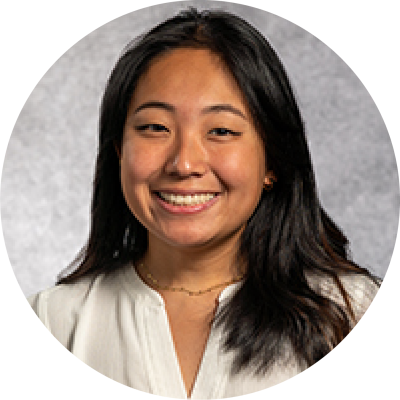
Casie Kubota
Organisms must be able to adapt to changes in nutrient availability in order to maintain normal physiology. The mechanisms involved in these homeostatic responses are of interest in many disease contexts, such as diabetes, cardiovascular disease and cancer. In the Espenshade lab, we are interested in studying lipid metabolism in cancer. Specifically, we are interested in targeting lipid metabolic pathways to treat pancreatic cancer, which historically has very poor patient outcomes. For my project, I designed a CRISPR knockout screen to identify genes that are required for pancreatic tumor growth in mice. Through subsequent follow-up experiments in vitro and in vivo, I demonstrated that the isoprenoid geranylgeranyl diphosphate is essential for tumor growth. These findings validate a method for conducting a genetic screen in mice, and provide evidence that implicates this pathway in pancreatic cancer.
Questions & Answers
Why did you choose Johns Hopkins for your work?
I chose to enroll in a Ph.D. program at Johns Hopkins because of the vibrant, diverse research community at the school of medicine that fosters innovative discoveries and provides an excellent environment for training young scientists.
What does receiving this award mean to you personally and professionally? Do you have any connection with the particular award you received?
Receiving this award is a great honor, personally and professionally. I feel it is a privilege for my work to be acknowledged with this historical award and to be recognized alongside other trainees who have contributed to biomedical research at Johns Hopkins.
What contributed to your project’s success?
Guidance from my thesis adviser, labmates and faculty collaborators have all contributed greatly to my project’s success. Without these mentors, I would not have had the tools I needed to complete my project.
What thoughts do you have about Young Investigators’ Day itself, as a celebration of the roles students and fellows play in research at Johns Hopkins?
Young Investigators’ Day is an exceptional way to come together as a community and celebrate the work done by fellow trainees in other fields.
What has been your best/most memorable experience while at Johns Hopkins?
My most memorable experience at Johns Hopkins was attending a tumor metabolism conference in Banff, Alberta, Canada. I enjoyed exploring the beautiful landscape of Banff National Park while also hearing incredible talks from other leading researchers in the field.
What are your plans over the next year or so? Graduating, looking for faculty positions, etc.?
I plan to graduate in the summer this year. I will be transitioning to a postdoctoral fellow position at the Salk Institute following my degree completion.
Tell me something interesting about yourself that makes you unique. Do you have any special hobbies, interests or life experiences?
I was born and raised in Hawai‘i on the island of O‘ahu. Being so far away from home is the greatest challenge I have faced during graduate school, but the community here has made it well worth the move.
Why did you choose Johns Hopkins for your work?
I chose to enroll in a Ph.D. program at Johns Hopkins because of the vibrant, diverse research community at the school of medicine that fosters innovative discoveries and provides an excellent environment for training young scientists.
What does receiving this award mean to you personally and professionally? Do you have any connection with the particular award you received?
Receiving this award is a great honor, personally and professionally. I feel it is a privilege for my work to be acknowledged with this historical award and to be recognized alongside other trainees who have contributed to biomedical research at Johns Hopkins.
What contributed to your project’s success?
Guidance from my thesis adviser, labmates and faculty collaborators have all contributed greatly to my project’s success. Without these mentors, I would not have had the tools I needed to complete my project.
What thoughts do you have about Young Investigators’ Day itself, as a celebration of the roles students and fellows play in research at Johns Hopkins?
Young Investigators’ Day is an exceptional way to come together as a community and celebrate the work done by fellow trainees in other fields.
What has been your best/most memorable experience while at Johns Hopkins?
My most memorable experience at Johns Hopkins was attending a tumor metabolism conference in Banff, Alberta, Canada. I enjoyed exploring the beautiful landscape of Banff National Park while also hearing incredible talks from other leading researchers in the field.
What are your plans over the next year or so? Graduating, looking for faculty positions, etc.?
I plan to graduate in the summer this year. I will be transitioning to a postdoctoral fellow position at the Salk Institute following my degree completion.
Tell me something interesting about yourself that makes you unique. Do you have any special hobbies, interests or life experiences?
I was born and raised in Hawai‘i on the island of O‘ahu. Being so far away from home is the greatest challenge I have faced during graduate school, but the community here has made it well worth the move.